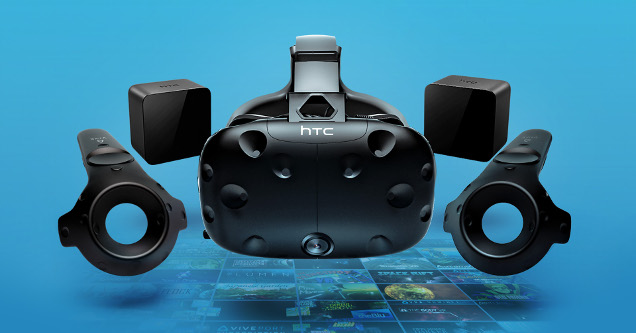HTC Vive Pro Announced And It Sounds A Bit Disappointing
Published 7 years ago in Ftw

After almost two years of HTC Vive and Oculus Rift consumer models being on the market, a second generation of virtual reality headset has finally arrived to blow your mind.
HTC Vive Pro is the first of many big technology announcements that you'll probably hear about today. And no, it's not a bottle of shampoo, it's an iterative improvement of one of the most sophisticated VR solutions on the market.

Its announcement has leaked ahead of today's reveal, which was initially teased just a few days ago. The confirmed improvements address every facet of the experience, from visual fidelity to how comfy the device feels on your face, albeit in a minor way.
Below are the key points:
1440x1600 per eye resolution
Integrated audio
Improved headstrap & comfort
New valve lenses
Lighthouse 2.0
Knuckles Controllers
Wireless addon option later this year
As someone who has owned both an HTC Vive and Oculus Rift, I find that the integrated audio and improved comfort are potentially the most significant points given that wearing a current HTC Vive model for more than 30 minutes results in what feels like brain damage. However, it's the increased panel resolution that has the greatest ramifications for the VR industry.
The resolution bump to 3K means a 78% increase in pixels, which sounds staggering on paper. However, the reality is that it is unlikely to be very noticeable, and is a ways off from removing the graininess that comes with staring at screens strapped to your face. But hey, you can bet that it'll require a lot of power to run anyway, and games like Job Simulator and Nympho Trainer will technically be more immersive than ever before.
Also Read:The 10 Best VR Games You Should Play After Getting A VR Headset In 2018
Apparently, the new Lighthouse 2.0 sensors and Ugandan Knuckles controllers are being developed in-house at Valve rather than HTC, which is a surprising point that gives us an idea of what Valve has been busy with during the past 24 months.
There's not a whole lot to talk about outside of that. A wireless option will be available later this year, but that's already on the market for the original HTC Vive. No official leg or hip sensors were mentioned, so we'll have to continue waiting for a first-party solution.
Now for the bad news: HTC Vive Pro will cost $799.99, stepping the industry back a couple years when it comes to affordability. But to the person who wants to role-play as a Ugandan Warrior in VRChat in the most realistic way possible, that steep price just might be worth it.
We'll be posting images of the device once press assets are available.



